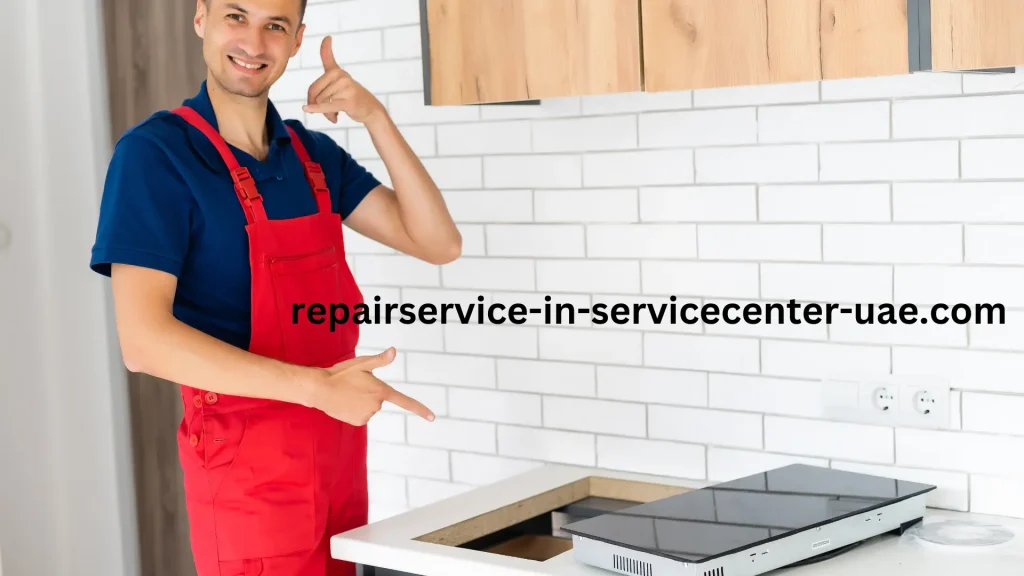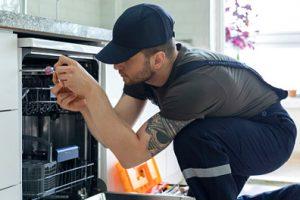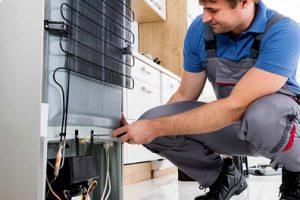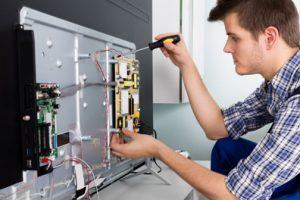Induction cooktops are a fantastic addition to any modern kitchen. They offer quick heating, precise temperature control, and energy efficiency. However, like any appliance, they can occasionally run into problems. Understanding how to troubleshoot these issues can save you time and money. This blog will guide you through common induction cooktop problems and how to fix them yourself.
Common Induction Cooktop Problems and Solutions
Cooktop Not Turning On
One of the most frustrating issues is when your induction cooktop doesn’t turn on. Before calling a professional, there are a few things you can check.
- Check the Power Source: Ensure that your cooktop is properly plugged in and that the outlet is functioning. Try plugging another appliance into the same outlet to see if it works.
- Check the Circuit Breaker: Sometimes, the circuit breaker might trip, cutting off power to the cooktop. Locate your home’s electrical panel and see if any switches are in the off position. If you find one, flip it back on.
- Child Lock Feature: Many induction cooktops come with a child lock feature. This could prevent the cooktop from turning on. Refer to your cooktop’s manual to disable the child lock.
- Faulty Power Cord: Inspect the power cord for any visible damage. If the cord is damaged, it needs to be replaced. Contact the manufacturer for a suitable replacement part.
If you’ve checked all these and your induction cooktop still won’t turn on, it might be time to contact a professional for further diagnosis.
Induction Cooktop Not Heating Properly
Another common issue is when the cooktop turns on, but doesn’t heat properly. Here are some steps to troubleshoot this problem:
- Compatible Cookware: Induction cooktops require compatible cookware with a magnetic base. If your pot or pan isn’t induction-compatible, the cooktop won’t heat it. Test your cookware by placing a magnet on the bottom. If it sticks, it’s compatible.
- Overheating Protection: Induction cooktops have built-in safety features to prevent overheating. If the cooktop becomes too hot, it may reduce the power to cool down. Allow it to cool and try again.
- Settings Check: Ensure that you have selected the correct heat setting. Sometimes, the cooktop might be set to a low heat setting, causing it to heat slowly.
- Sensor Issues: Induction cooktops use sensors to detect the presence and size of cookware. If these sensors are dirty or malfunctioning, they might not work properly. Clean the surface of the cooktop and ensure there’s no debris interfering with the sensors.
- Power Supply: A fluctuating power supply can affect the heating performance of your cooktop. Ensure that your cooktop is receiving a steady power supply.
If the cooktop still doesn’t heat properly after these checks, there might be an internal issue that requires professional attention.
Cooktop Shutting Down Unexpectedly
If your induction cooktop shuts down unexpectedly, it can be quite annoying, especially in the middle of cooking. Here’s how to address this issue:
- Ventilation: Induction cooktops need proper ventilation to operate efficiently. If the cooktop overheats due to poor ventilation, it may shut down. Ensure that the vents are not blocked and the cooktop has enough space around it for air circulation.
- Power Surges: Sudden power surges can cause the cooktop to shut down. Consider installing a surge protector to safeguard your appliance.
- Timer Settings: Some induction cooktops have a built-in timer feature. If the timer is set, the cooktop will shut off when the time is up. Check the timer settings and reset if necessary.
- Overheating Protection: As mentioned earlier, induction cooktops have overheating protection. If it shuts down due to overheating, let it cool before using it again.
- Firmware Issues: Sometimes, the cooktop’s firmware might have glitches causing it to shut down. Check if there are any firmware updates available from the manufacturer.
If the problem persists, you might need to consult a professional to inspect the internal components.
Error Codes on Display
Modern induction cooktops come with digital displays that show error codes when something goes wrong. Understanding these codes can help you diagnose the problem quickly.
- Refer to the Manual: The first step is to refer to your induction cooktop’s manual. It will have a list of error codes and their meanings.
- Common Error Codes:
- E0/E1: No cookware detected or incompatible cookware. Ensure you’re using the right type of cookware.
- E2: Cooktop is too hot. Allow it to cool down before using again.
- E3: Power supply issues. Check your power connections and circuit breaker.
- E4: Overheating protection activated. Ensure proper ventilation.
- E5: Internal fault. This usually requires professional attention.
- Reset the Cooktop: Sometimes, a simple reset can clear the error. Turn off the cooktop, unplug it for a few minutes, and then plug it back in and turn it on.
If you’re unable to resolve the error code, contacting a professional for further assistance is advisable.
Strange Noises from the Cooktop
Induction cooktops can sometimes produce strange noises, which can be concerning. Here are some common noises and their causes:
- Humming or Buzzing: This is normal and usually occurs at higher power settings. It’s caused by the vibration of the magnetic fields.
- Clicking: This sound can occur when the cooktop switches power levels. It’s a normal part of operation.
- Fan Noise: Induction cooktops have built-in cooling fans to prevent overheating. The fan running is a normal sound, especially after extended use.
- Popping or Cracking: This could be due to trapped moisture in the cookware. Ensure your pots and pans are dry before placing them on the cooktop.
- High-Pitched Whine: Some induction cooktops might produce a high-pitched whine due to the electronic components. If it becomes excessively loud, you might want to have it checked by a professional.
Understanding these noises can help you determine whether there’s a problem or if it’s just normal operation.

Maintaining Your Induction Cooktop
Proper maintenance can prevent many of the common problems associated with induction cooktops. Here are some tips to keep your cooktop in top condition:
- Regular Cleaning: Wipe down the cooktop after each use with a soft cloth and a mild cleaning solution. Avoid using abrasive cleaners that can scratch the surface.
- Check Cookware: Always use induction-compatible cookware to ensure efficient heating and to prevent damage to the cooktop.
- Avoid Overheating: Avoid using high heat settings for extended periods. This can prevent overheating and potential damage to the cooktop.
- Ventilation: Ensure proper ventilation around the cooktop to prevent overheating. Keep the vents clean and unblocked.
- Firmware Updates: Check for firmware updates from the manufacturer to ensure your cooktop runs efficiently.
- Inspect for Damage: Regularly inspect the cooktop for any visible damage. Address any issues promptly to avoid further problems.
- Avoid Heavy Impacts: Induction cooktops have a glass-ceramic surface that can crack under heavy impact. Be careful when placing heavy cookware on the cooktop.
By following these maintenance tips, you can prolong the life of your induction cooktop and avoid many common issues.
When to Call a Professional
While DIY troubleshooting can solve many induction cooktop problems, some issues require professional attention. Here’s when to call for help:
- Persistent Problems: If you’ve tried all troubleshooting steps and the problem persists, it’s time to call a professional.
- Error Codes: If an error code persists despite your attempts to resolve it, professional diagnosis is needed.
- Internal Issues: Problems like internal wiring faults, faulty sensors, or damaged components require professional repair.
- Warranty Considerations: If your induction cooktop is still under warranty, it’s best to contact the manufacturer or an authorized service center for repairs.
For any persistent or complex issues with your induction cooktop, don’t hesitate to contact a professional. You can reach out to us at 0567750003 for expert assistance and repair services.
By following these DIY troubleshooting tips, you can address many common induction cooktop problems and keep your appliance running smoothly. Remember, regular maintenance is key to preventing issues and extending the life of your cooktop.







